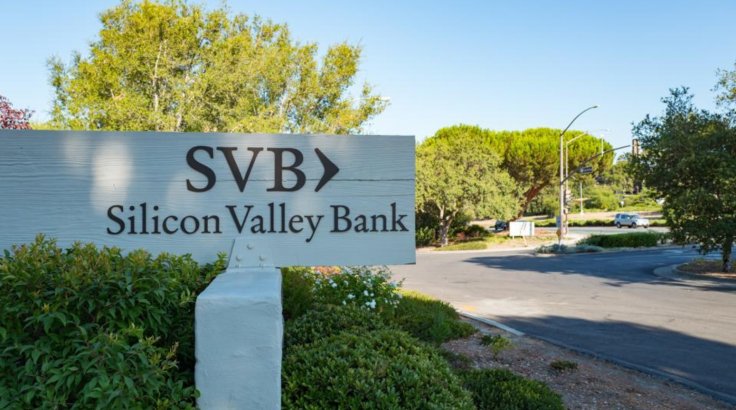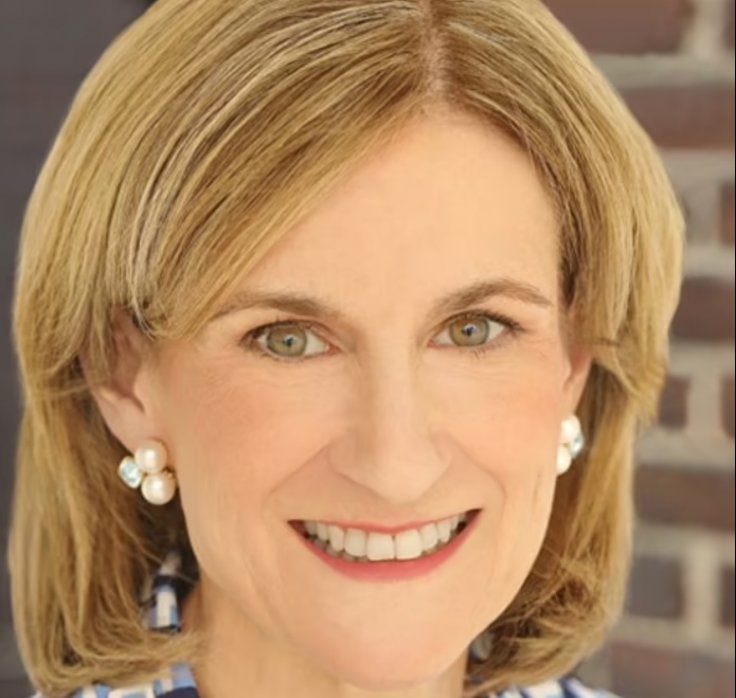Silicon Valley Bank operated without a chief risk officer for nine months before it collapsed on Friday, rattling the US financial system. This happened as the head of risk management at Silicon Valley Bank spent considerable time spearheading multiple woke LGBTQ+ programs, including a "safe space" for coming out stories.
Jay Ersapah, the head of financial risk management for SVB's UK division, introduced initiatives including the organization's first month-long Pride campaign and a new blog that emphasizes mental health awareness for LGBTQ+ youngsters. In a corporate video posted just nine months before the bank catapulted to collapse, Ersapah said she "could not be prouder" to work for SVB serving "underrepresented entrepreneurs."
At its Own Risk

Ersapah, who describes herself as a "queer person of color from a working-class background," acts as CRO for the bank in Europe, Africa and the Middle East. "The phrase 'you can't be what you can't see' resonates with me,'" Ersapah was quoted as saying on the company website.
"As a queer person of color and a first-generation immigrant from a working-class background, there were not many role models for me to 'see' growing up."

She earned a spot on SVB's "outstanding LGBT+ Role Model Lists 2022" thanks to her work as the organization's co-chair of the European LGBTQIA+ Employee Resource Group. The list was released in a company post just four months before the bank was closed down by federal authorities due to liquidity concerns.
Ersapah spent time over the past year acting as a director for Diverse Role Models and working as a mentor for Migrant Leaders, in addition to establishing SVB's first "safe space catch-up" that encouraged staff members to share their coming out stories.
"I feel privileged to co-chair the LGBTQ+ ERG and help spread awareness of lived queer experiences, partner with charitable organizations, and above all, create a sense of community for our LGBTQ+ employees and allies."

This revelation comes as the bank disclosed a $1.8 billion financial loss, making it the biggest bank to fail since the 2008 financial crisis.
No Focus on Risk
Laura Izurieta, a former Capital One employee who held a similar role at SVB, resigned as the bank's head of risk in April 2022. Kim Olson, formerly of the Japanese bank Sumitomo Mitsui, was employed by the bank in January 2023, but she wasn't replaced until then.

In a news announcement announcing Olson's appointment in January, the bank noted that she provided "thirty years of financial services experience."
"SVB has an impressive track record of sound growth and remaining true to its strategy of serving the innovation economy. I am excited to lead SVB's outstanding risk management team and continue to build SVB's risk management framework and capabilities in this important next chapter of the firm's trajectory," Olson said at the time.
SVB was shut down abruptly on Friday by the California Department of Financial Protection and Innovation, not long after it revealed it had suffered a $1.8 billion loss from a $21 billion fire sale of its bond assets.
It faced a cash crunch owing to rising interest rates and the recent collapse of the tech sector, and many clients reduced their deposits.

Shares of SVB Financial, the parent company of the bank, SVB Financial, plummeted a staggering 60 percent on Thursday. Prior to being suspended on Friday, premarket trading saw a further 60 percent decline in the stock.
Bernie Marcus, the co-founder of Home Depot, implied on Saturday that the SVB's abysmal failure might have been caused by "woke" rules like those introduced by Ersapah.
"I feel bad for all of these people that lost all their money in this woke bank. You know, it was more distressing to hear that the bank officials sold off their stock before this happened. It's depressing to me," he told Fox News' Neil Cavuto.
"Who knows whether the Justice Department would go after them? They're a woke company, so I guess not. And they'll probably get away with it."
The billionaire accused the Biden administration of forcing businesses and banks to prioritize shareholder gains over global warming, leading to catastrophic economic problems.
"These banks are badly run because everybody is focused on diversity and all of the woke issues and not concentrating on the one thing they should, which is, shareholder returns," Marcus said.
"Instead of protecting the shareholders and their employees, they are more concerned about the social policies. And I think it's probably a badly run bank.
"They've been there for a lot of years. It's pathetic that so many people lost money that won't get it back."
Although the effects of SVB's failure are not totally clear, analysts predict that they might have an effect on the future of regional and mid-sized banks nationwide.









